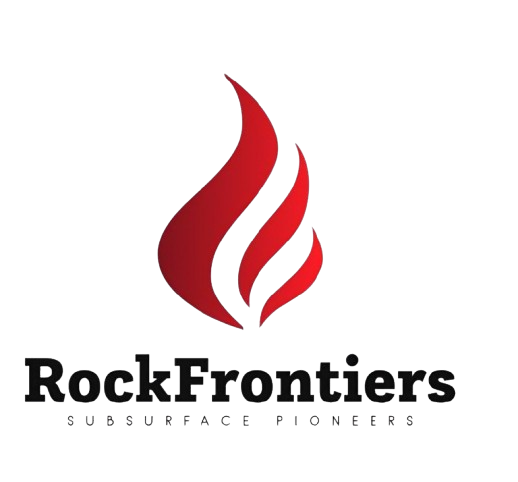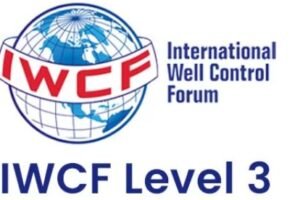Carbonate Field Development
⏳ Duration : 5 Days ···················································································································································· Description: This advanced course focuses on the unique geological, petrophysical, and engineering aspects of developing carbonate reservoirs. It covers reservoir characterization, recovery mechanisms, development strategies, well placement, and uncertainty handling in mature and complex …
Overview
⏳ Duration : 5 Days
····················································································································································
Description:
This advanced course focuses on the unique geological, petrophysical, and engineering aspects of developing carbonate reservoirs. It covers reservoir characterization, recovery mechanisms, development strategies, well placement, and uncertainty handling in mature and complex carbonate systems.
| 6-Oct | LONDON | Dates could be adjust for special requests |
| 13-Oct | CAIRO | |
| 20-Oct | DUBAI | |
| 27-Oct | ISTANBUL |
By the end of the course, participants will be able to:
- Understand the geological complexity of carbonate reservoirs, including depositional environments, diagenesis, and heterogeneity, and how these factors influence field development strategies.
- Evaluate reservoir quality and flow behavior using petrophysical analysis, rock typing, and dynamic modeling techniques tailored for carbonates.
- Design effective recovery strategies including primary, secondary (waterflood), and tertiary (EOR) methods specific to carbonate reservoirs.
- Integrate static and dynamic data to build reliable development plans, optimize well placement, and forecast reservoir performance.
- Assess technical and economic uncertainties in carbonate field development through scenario planning, risk analysis, and field case studies.
Target Audience:
This course is tailored for professionals involved in, geoscience, reservoir engineering, petroleum engineering, production engineering, and field development. It is ideal for:
• Geoscientists aiming to understand the geological aspects of reservoirs and their impact on recovery strategies.
• Reservoir engineers seeking to deepen their expertise in advanced reservoir engineering techniques.
• Field development professionals involved in maximizing hydrocarbon recovery from oil and gas fields.
Day 1: Carbonate Reservoir Fundamentals
- 09:00–09:45: Introduction to carbonate systems and global significance
- 09:45–10:30: Carbonate depositional environments and facies models
- 10:30–10:45: ☕ Coffee Break
- 10:45–11:30: Diagenesis and its impact on reservoir quality
- 11:30–12:15: Heterogeneity and dual-porosity systems in carbonates
- 12:15–13:15: 🍽️ Lunch Break
- 13:15–14:00: Comparison of carbonate vs. clastic field development
- 14:00–14:45: Case study: carbonate field failure due to heterogeneity
- 14:45–15:00: Daily wrap-up and Q&A
Day 2: Reservoir Characterization for Carbonates
- 09:00–09:45: Petrophysical evaluation: porosity types and saturation
- 09:45–10:30: Core analysis and SCAL data integration
- 10:30–10:45: ☕ Coffee Break
- 10:45–11:30: Seismic and structural controls on reservoir development
- 11:30–12:15: Rock typing and flow unit analysis
- 12:15–13:15: 🍽️ Lunch Break
- 13:15–14:00: 3D modeling of carbonate heterogeneity
- 14:00–14:45: Practical: flow unit identification from logs
- 14:45–15:00: Summary and Q&A
Day 3: Recovery Mechanisms and Development Planning
- 09:00–09:45: Natural drive mechanisms in carbonates
- 09:45–10:30: Water flooding: sweep efficiency and conformance in fractures
- 10:30–10:45: ☕ Coffee Break
- 10:45–11:30: EOR strategies in carbonates (miscible gas, surfactants, etc.)
- 11:30–12:15: Capillary vs. permeability controls on recovery
- 12:15–13:15: 🍽️ Lunch Break
- 13:15–14:00: Strategic well placement: vertical, horizontal, multilateral
- 14:00–14:45: Case study: optimized carbonate development plan
- 14:45–15:00: Recap and Q&A
Day 4: Stimulation Techniques: Fundamentals of Hydraulic Fracturing
- 09:00–09:45: Introduction to hydraulic fracturing and its role in well stimulation
- 09:45–10:30: Rock mechanics: stress regimes, fracture initiation, and propagation
- 10:30–10:45: ☕ Coffee Break
- 10:45–11:30: Fracturing fluids: types, additives, fluid loss control
- 11:30–12:15: Proppant selection and transport mechanisms
- 12:15–13:15: 🍽️ Lunch Break
- 13:15–14:00: Fracture geometry and containment
- 14:00–14:45: Case study: vertical fracture design in tight sandstone
- 14:45–15:00: Q&A and wrap-up
Day 5: Integrated Development Planning and Case Study
- 09:00–09:45: Integrating G&G, petrophysics, and engineering
- 09:45–10:30: Economic evaluation and decision trees
- 10:30–10:45: ☕ Coffee Break
- 10:45–11:30: Risk assessment and uncertainty management
- 11:30–12:15: Production surveillance and performance indicators
- 12:15–13:15: 🍽️ Lunch Break
- 13:15–14:00: Final group workshop: design a carbonate FDP
- 14:00–14:45: Group presentations and peer reviews
- 14:45–15:00: Certification, feedback, and course closure
Target audiences
- Reservoir Engineers, Geologists






